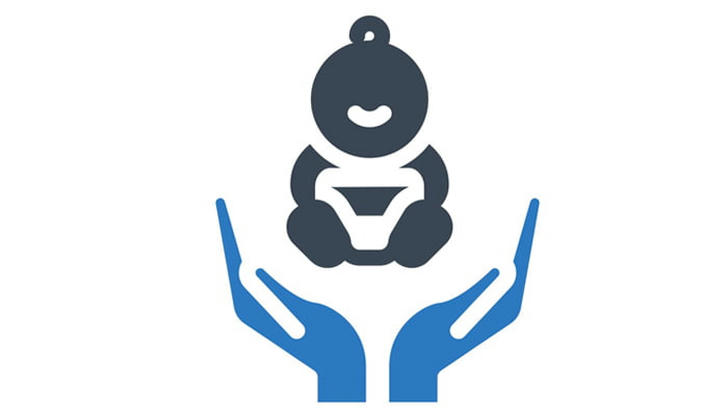What Every New Mom Needs to Know About Health Insurance for Their Baby

First things first: why is health insurance so important for your baby?
Without health insurance, even a simple pediatrician visit or a round of vaccinations can cost hundreds of dollars. For example:
• Pediatrician visits: A routine visit to the pediatrician can cost anywhere from $100 to $200 without insurance.
• Vaccinations: Some vaccines, such as the DTaP (Diphtheria, Tetanus, and Pertussis) shot, can cost up to $150 to $200 per dose if you're paying out-of-pocket.
• Emergency room visits: In the event of an emergency, a single ER visit can range from $500 to over $2,000, depending on the severity of the situation.
• Specialized care: If your baby needs specialized care or treatment, such as a trip to a pediatric cardiologist or surgery, costs can easily climb into the thousands of dollars.
Having the right health insurance means you won’t be caught off guard by these high medical bills. It ensures that you have access to necessary care for your baby without the financial strain of paying out-of-pocket for every visit or treatment.
When Should You Enroll Your Baby in Health Insurance?

The best time to add your baby to your health insurance is within 30 days of their birth. Most insurance plans have a “newborn window” where babies can be added without the usual enrollment process. If you miss that window, you might have to wait for open enrollment, which only happens once a year.
If you're unsure about how to add your baby, check with your health insurance provider to get the specifics. In many cases, you can add your baby directly to your existing plan, or you may need to choose a separate plan for them if you’re on a different type of coverage.
What Are the Types of Health Insurance for Babies?

There are a few main types of health insurance that can cover your baby. Understanding these will help you decide which option is best for your family.
Employer-Sponsored Insurance
If you or your partner has a job that provides health insurance, your baby can usually be added to your existing plan. Employer-sponsored insurance tends to be the easiest and most cost-effective option for most families. You’ll likely pay a monthly premium for coverage, but it usually comes at a lower cost than individual plans.
Medicaid/CHIP (Children’s Health Insurance Program)
If your family’s income is low, your baby may qualify for Medicaid or CHIP. These programs provide free or low-cost health coverage for children. Eligibility varies by state, so it’s a good idea to check with your local Medicaid office or visit the government’s HealthCare.gov website for more details.
Marketplace Plans (Affordable Care Act)
If you don’t have access to employer-sponsored insurance, you can purchase a health insurance plan for your baby through the Health Insurance Marketplace. Depending on your income, you may qualify for subsidies that can make this option more affordable. Keep in mind that you’ll need to apply during open enrollment or after a qualifying life event, like your baby’s birth.
What Does Health Insurance for Your Baby Cover?

Baby health insurance typically covers the same services as it would for adults, but with a few extra things to keep in mind. Here’s what most plans will cover for your little one:
Wellness Check-Ups: Babies need regular check-ups to ensure they are growing and developing as they should. These visits are essential for monitoring their health and are usually covered by health insurance at no extra cost.
Vaccinations: Keeping your baby up to date with their immunizations is one of the most important ways to protect them from serious diseases. Most health insurance plans cover these shots without any out-of-pocket costs.
Sick Visits: If your baby gets sick or has a fever, their doctor’s visits and treatments will be covered. This includes things like colds, ear infections, and more.
Specialized Care: If your baby has any special needs or requires more intensive care (for example, if they are born prematurely or have a condition that needs attention), your health insurance should cover these costs as well.
Always double-check the specifics of your plan to make sure there are no hidden costs or exclusions.
How to Save Money on Your Baby’s Health Insurance

Health insurance for babies can get expensive, but there are ways to save money while ensuring your child is properly covered:
Choose a Plan with Preventive Care: Many insurance plans offer coverage for preventive services like vaccinations and regular check-ups without extra costs, so make sure to choose a plan that includes this.
Look into Medicaid/CHIP: If you’re eligible, Medicaid or CHIP can provide free or low-cost coverage for your baby, and you won’t have to worry about hefty premiums or deductibles.
Consider a High Deductible Plan: If you’re generally healthy and don’t expect a lot of medical needs, a high-deductible plan can save you money on premiums. Just be sure to save in case you need to cover the deductible later on.
Use Health Savings Accounts (HSAs): If your health insurance plan includes an HSA, this is a great way to save money tax-free for medical expenses, including those for your baby.
How to Add Your Baby to Your Health Insurance

Once you’ve decided on the type of health insurance for your baby, the next step is adding them to your plan. Here’s how to get started:
Review Your Current Health Insurance: Check if your baby can be added to your existing plan, or if you need to purchase a separate policy. If you’re on an employer-sponsored plan, contact your HR department to see how to add your baby.
Gather the Necessary Documents: Typically, you'll need your baby’s birth certificate and other personal information to complete the process. Be sure to have everything ready when you reach out to your insurance provider.
Set Up the Coverage: Once you’ve confirmed your baby’s health insurance plan, be sure to review the coverage and ensure that it includes all the necessary services.
